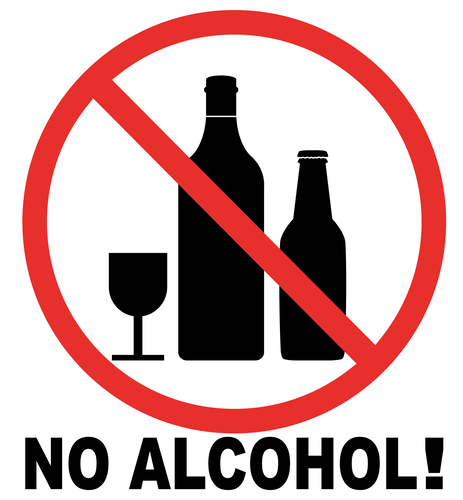It is believed that the provision of benzodiazepines alleviates the acute deficiency of GABA neurotransmitter activity that occurs with sudden cessation of alcohol intake. Well-designed studies consistently have shown that benzodiazepines are more effective than placebo in reducing the signs and symptoms of withdrawal. You may start with verbal sparring and even work your way up to throwing a punch.
The 6 Stages of Alcohol Intoxication: When is it Too Much?
- The withdrawal symptoms last until the body readjusts to the absence of the alcohol and establishes a new equilibrium.
- Clear liquors, such as rum, vodka, and gin, cause hangover less frequently (2,3).
- If you need help to quit or limit your drinking, the Department of Defense provides screenings to help identify what type of support you need and what treatment would work best for you.
In other cases, the patient remains delirious for several days, with reports of periods as long as 50 days before the confusion clears (23). Before the development of effective treatment, mortality in DTs was substantial. With the development of effective therapy, including intensive care, death from DTs is an unusual event (14,23). These EEG abnormalities are transient, in keeping with the brevity of the convulsive attacks. Except for this brief period after withdrawal, the incidence of EEG abnormalities in patients with withdrawal seizures is not greater than in the normal population.
What Can You Do If You Have an Alcohol Problem?
- If you think it’s a case of extreme alcohol intoxication, call 911 immediately.
- At Casa Palmera, our goal is to aid you in a comprehensive spiritual, physical, and emotional recovery.
- These are only a few factors that can impact how an individual is affected by alcohol.
- As alcohol is consumed, it binds to receptors in the brain, disrupting the normal functioning of neurotransmitters such as gamma-aminobutyric acid (GABA) and glutamate.
- Specifically, aiding with showers, baths, and toileting may be perceived by the patient as a violation of personal space and body (Zeller et al., 2009).
Treatment should allow for a degree of individualization so that patients can receive large amounts of medication rapidly if needed. In all cases, medications should be administered by a route that has been shown to have reliable absorption. Therefore, the benzodiazepines should be administered orally or, when necessary, intravenously. An exception is lorazepam, which has good intramuscular and sublingual absorption. However, for most agents, intramuscular absorption is extremely variable, leading to problems when rapid control of symptoms is necessary and also with delayed appearance of oversedation when large amounts are administered. Examples of some treatment regimens consistent with current recommendations are shown in Table 43-3.
Full access? Get Clinical Tree
PHPs accept new patients as well as people who have completed an inpatient program of 1 to 2 weeks but still need focused recovery care. You’ll live in safe, substance-free housing and have access to professional medical monitoring. Patients should Substance abuse be carefully monitored after being treated and stabilized as their vital functions return to normal.
- In certain patients, such as those with severe coronary artery disease, the clinician may wish to prevent the development of even minor symptoms of withdrawal.
- If you find yourself in a place where you find it difficult to control your alcohol consumption, in which stage of intoxication does an individual become aggressive or withdrawn and sleepy consider seeking help.
- This might be the stage during which they experience massive confusion or even blackouts.
- These stages progress based on Blood Alcohol Content (BAC), so people progress through them as they have more to drink.
Blood sugar levels and BAC can be checked with a simple urine in which stage of intoxication does an individual become aggressive or withdrawn and sleepy or blood test. When a person has consumed quite a few alcoholic drinks, the effects of the alcoholic stupor stage will become stronger. Individuals might have exaggerated euphoric episodes, and their equilibrium may be lacking. This might be the stage during which they experience massive confusion or even blackouts. Drunkenness is an umbrella term encompassing physical and psychological symptoms attributed to alcohol consumption within a period.
Factors Influencing Intoxication Levels
They should be distinguished from the hallucinosis that can be part of delirium tremens (DTs) (see below). An individual’s reaction may vary depending on the amount they consume. When someone has consumed alcohol, they may exhibit physical and behavioral symptoms depending on several factors. Some indicators include genetics, body mass index, frequency of intoxication, overall health, and more. These are only a few factors that can impact how an individual is affected by alcohol. It’s important to understand the stages of alcohol intoxication and be able to recognize the signs that you may need help for alcohol abuse or addiction.


Realizing you have a problem with alcohol may be the first step toward getting the treatment and support you need to recover. Understanding the different levels of intoxication is important for both individuals who consume alcohol and those around them. Recognizing the signs and symptoms of each level can help prevent dangerous situations and allow for timely intervention when necessary. Alcohol has the ability to impact emotions and behavior, often resulting in changes in mood and personality. Initially, alcohol can induce feelings of relaxation and reduced inhibitions. It can take anywhere from 15–45 minutes for a person to feel the full effects of an alcoholic drink.

Six Stages Of Alcohol Intoxication
When the speed at which alcohol is metabolized is faster than what the human body can consume, an individual develops drunkenness. Kelly is a board certified Psychiatric-Mental Health Nurse Practitioner who earned her Master of Science degree in Nursing with a concentration in mental health at Fairleigh Dickinson University. Kelly has fourteen years nursing experience as a Registered Nurse, Nurse Manager, and Advanced Practice Nurse in both psychiatric and substance use disorder settings. She has worked in inpatient settings as well as provided community nursing as a Nurse Practitioner. Kelly brings empathy to an underserved population and her clients share that they feel listened to without judgment.
The Right Treatment Facility
This is important to know because those who have conditioned themselves to be able to consume large amounts of alcohol could be at risk for nearing a deadly BAC or alcoholic overdose. People who are left to “sleep it off” may end up experiencing hazardously slowed breathing or complete respiratory arrest, or they may aspirate on their own vomit. As a bartender or alcohol server, it’s your responsibility to stop service once you suspect that someone is over their limit. Combatting the ever-growing drug epidemic that this country faces begins with you. Make the most of our vast knowledge of addiction treatment and our proven ability to change lives.
